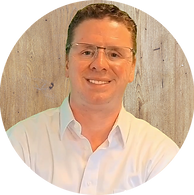Change Must Come From Within
- Derek Hagen

- Jun 14, 2018
- 4 min read
Updated: Nov 14, 2020
My grandparents both smoked, like most people did back in those days. It wasn't until later in their lives that research was being brought to the public attention telling society that smoking gives you a fast-track to death, and usually an unpleasant death. Do you think my grandparents quit smoking when they learned of this research? You guessed it; nope. Then the people who didn't smoke got up their high horses, just like we like to do, and told my grandparents, "Hey, you should be more like me and quit smoking. You are killing yourselves." The research AND hearing from friends telling them they should quit would make them quit, right? No. But, then there were more and more people telling them to quit. Certainly the research, hearing from their friends, and social pressure must work. It didn't.
It must have been the addiction that was so strong.
But then my grandfather got ill and he quit. When my grandmother got ill, she quit, too. I guess the addiction wasn't so strong after all.
What gives? Why could they both quit so quickly if they were addicted but not because they were told to?

Don't Tell Me What To Do
Think about a time when someone told you what to do. Did you think about a boss barking orders at you? Maybe a partner telling you to do something? It could even be your doctor telling you that your diet needs to change or your weight is too high. The point is, we don't do very well when people tell us we need to do something. It fights our need for autonomy. I've even seen comedies where someone will say, "I'm going to do, but because I want to not because you told me to."
Data and Logic and Research, oh my!
Many of us have been frustrated when we're in a debate with someone (both playful debates and less playful arguments) and we just can't get the other person to see our logic. It's so clear to us, but the other person doesn't get it. How dumb can they be?
Everything makes perfect sense to us when we think about our own views and behaviors. But guess what? Everything would make perfect sense to us about others' views and behaviors if we had the same experiences they had. I can't change your experience.
This is why when I tell a smoker that they are going to die if they keep smoking it doesn't change their behavior. Telling your friend that she should research car loans before buying a car because she'll pay less in interest won't always get her to take the time to do it. Telling your son or daughter to change careers because they aren't making enough money or because there are better benefits in other professions probably doesn't work.
What Does This Have To Do With Money?
The basics of personal finance are pretty simple at their core. Knowing what to do is pretty common sense, and very easily found just doing a Google search. I'll bet you already know that you need to spend less than you earn, don't waste your money on things that you don't value or that have no value, stay out of debt, save a portion of your income, and invest in your future.
Unfortunately, even though we know what to do, most of us have a very hard time actually doing it. And because we struggle actually doing it's easy for us to think there's something inherently wrong with us - because it should be so simple. Then, because we're embarrassed about it we don't talk with any one about it. This is how the cycle starts.
Find The Motivation
There are many smokers who still smoke even through they know they shouldn't. Part of this is addiction, but part of this is not really wanting to change. The good news is that knowing what to do with our money but not doing it isn't your fault. Everyone of us is a little weird about money and we are all a product of where we came from and how the people in our lives dealt with money. Once we know that, we can start to recognize our money scripts, or the unconscious beliefs about money that we learned as children that affect our money behaviors as adults. We can recognize how those scripts affect our current money health, and we can learn to rewrite our scripts in order to change our behavior.
In order to change we have to first want to change, and in order to want to change we have to make ourselves want to change. Try imagining what kind of life you want to live. Think about what you value. If you can imagine your ideal future it's often times easier to align our behaviors and our values. It's simple, but it's not necessarily easy.
Read More:
References:
Brad Klontz, Ted Klontz: Mind Over Money
Brad Klontz, Rick Kahler, Ted Klontz: Facilitating Financial Health
William Miller, Stephen Rollnick: Motivational Interviewing
--
If you liked this post, consider joining the Money Health community. By signing up you'll get updates sent directly to you so you'll never miss anything.
© 2018 Money Health Solutions, LLC
















